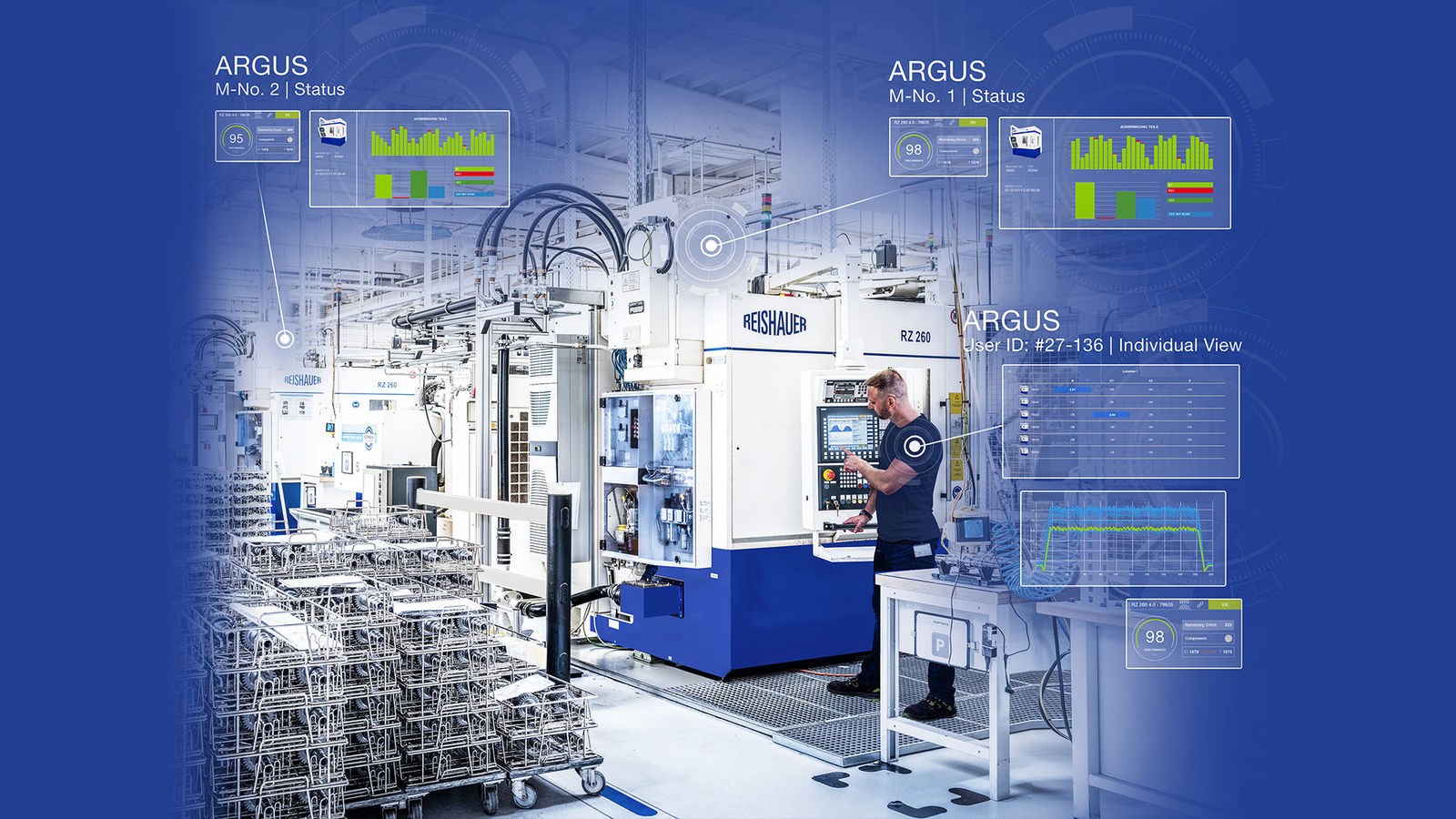Digitization of Hard Fine Machining of Gears in a Production Environment
The goal is to optimize processes further and extend tool life to meet increasingly higher quality standards while reducing production costs
A view of the ZF production environment.
ZF-Brandenburg exemplifies modern manufacturing processes utilizing digital technologies. Integrating machines and production technologies into the digital world, where machines connect to the cloud and algorithms assist in assessing machine statuses, is already standard practice here. Operators, planners, and managers are always networked with all systems in real time, making ZF-Brandenburg a pioneer in digitalization best practices. Among other innovations, ZF employs the Argus Monitoring System from Reishauer to digitalize its machine tools in the hard fine machining of gears. This article by Reishauer AG summarizes the insights gained from digitization in the machine tool sector, highlighting the long-term collaboration between the two companies. ZF Getriebe Brandenburg GmbH, distinguished by a team of over 1,500 specialists, leads in producing exclusive manual and dual-clutch passenger car transmissions used in high-end German sports cars for maximum precision and performance. A crucial factor in the quality of these transmissions is the precise ground gears manufactured on machines from Reishauer AG, a Swiss pioneer in gear grinding machines.
Reishauer’s ARGUS system is a groundbreaking innovation for monitoring processes and workpieces produced at ZF. This system enables the evaluation and optimization of the grinding process quality and the precise monitoring of machine components and grinding tool wear. The collaboration aims to leverage joint synergies by combining specialist production knowledge with the innovative power of digital solutions. Both companies are deeply committed to continuous optimization, resulting in a mutually beneficial partnership. ZF utilizes the ARGUS system to meticulously monitor processes and machine components in gear production, achieving significant advancements in its manufacturing technology.
What Will Gear Production Look Like in the Digital Age of 2024?
ZF Brandenburg revolutionized gear production by comprehensively implementing the ARGUS monitoring system. Today, almost 100 percent of all components are monitored directly, permanently, and seamlessly in real-time. This continuous monitoring guarantees an unprecedented level of safety in modern gear production. The ARGUS system monitors components and ejects potentially defective workpieces during the machining cycle, preventing quality issues in subsequent assembly stages. This proactive approach enhances process reliability and significantly reduces costs in later process steps. Process planners can react immediately to unexpected issues, such as frequency excitations. With 100 percent control provided by the ARGUS system, they can see exactly how each component is or was ground, recognize machine conditions, and identify problems in real-time. This allows them to eject faulty components from the machine or block critically identified parts in the process flow before installation in gearboxes, thus preventing faults that previously led to costly dismantling measures. The ARGUS system enables efficient detection of grinding worm breakages caused by local overloads during pre-machining fluctuations and easily detects rare large breakages due to collisions. One of the primary reasons ZF acquired the ARGUS system was to address challenging vibration problems. Shortly after implementation, with the expertise of Reishauer, ZF developed the ability to detect potential sources of vibration in specific working areas of the grinding worms. Calibration of the process monitoring was optimized to remove components that could potentially cause unwanted noise (NVH) in transmissions from the process chain. This optimization resulted from analyzing large amounts of data in the ARGUS web application, ensuring a higher quality of the final product and enhancing overall production efficiency.









